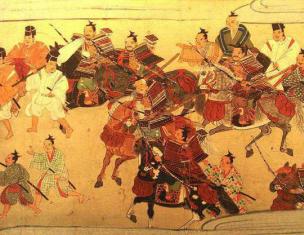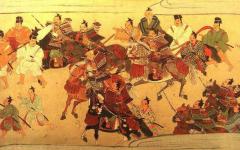Magazine screensaver - News of the bookstores of the M.O. Wolf on literature, sciences and bibliography
In 1848, a representative of a large Vilna publishing and bookselling company came to St. Petersburg. In a short time, the young man, thanks to his deep knowledge and erudition, became a welcome guest in those houses in St. Petersburg where they were interested in literature. Called young man Mavriky Osipovich Wolf. Just at that time, the well-known publisher in Russia Y.A. Isakov was looking for an experienced specialist who knew French literature well, who could put the corresponding section in order in his bookstore in St. Petersburg. Having learned that Mauritius Wolf had previously collaborated with one of the large Parisian book firms, Isakov offered him a vacant position.
Wolf came from a family of hereditary doctors; his grandfather was the physician of the Austrian Emperor Joseph II. But from the age of twelve, Mauritius had a desire to devote himself to book writing. After graduating from high school, he decided to go to Paris, where, as he believed, it was only possible to “properly prepare” for his chosen specialty. There he worked in the famous bookselling companies of Bossange, Brockhaus, and Avenarius. Then, for a year and a half, he mastered the wisdom of trade in Leipzig from Engelmann. To gain experience, I traveled to Lvov, Krakow, and Vilna. As a representative of Polish firms, he moved with boxes of books from city to city in northwestern Russia. After four years of such wanderings, having achieved certain successes, Wolf decided to move to St. Petersburg.
The energetic young man quickly managed to make numerous and useful acquaintances, got his bearings in his new position and soon became the manager of Isakov’s entire book trade. Contemporaries recalled: “A lively storyteller who had an excellent command of French“Wolf not only did not get lost in the company of noble and important people, but managed to attract attention to himself, and people always listened to him with pleasure.”
Entering the service of Isakov, Wolf negotiated for himself the right to independently publish Polish books. This is how editions of works by Krashevsky, Zalevsky, Kachkovsky, Spasovich, and Bartoshevich appeared. The enterprise grew, and Mavriky Osipovich began to think about organizing his own business.
October 1, 1853 in the center of the Nevskaya Line Gostiny Dvor opened in a European style bookstore M.O. Wolf. At first glance, bookselling doesn't seem like such a difficult business. However, the bookseller must be well versed in the reader's tastes and preferences. Wolf's knowledge of all areas of literature was one of the reasons why his bookstore became the most popular in the capital.
Simultaneously with the opening of the store, Mavriky Osipovich took up the publishing of Russian books. You can be a good merchant, but without love and interest in what you sell, it is impossible to become a successful publisher. And in this field, Wolf gained success, despite the fact that, by his own admission, “there have been cases when the publisher personally finds the work proposed to him for publication excellent, but an experienced eye tells him that he will not please the public and it will be left without any encouragement. But we published more than one major work with an obvious expectation of loss, which literature had to have only for the sake of the honor of literature.”
Announcement of the opening of a new Russian books store M.O. Wolf. 1854
The first book in Russian that Wolf published was “Public Mechanics” by N.G. Pisarevsky. The choice was dictated by the then demand for popular scientific literature accessible to non-specialists.
Three years after the start of publishing, Mavriky Osipovich opened his own printing house, and in 1874 he joined the printing house of V.I. Golovin, and in 1878 acquired the foundry of E. Revillon and enlarged it by purchasing in Paris all the punches of the famous engraver and wordsmith Lellier.
Wolf was always faithful to his publishing credo. He wanted to be an encyclopedist publisher and published books in all branches of knowledge. The first introduced the Russian public to the works of Schlosser, Figier, Cuno-Fischer. The first published the collected works of Dahl, Pisemsky, Mickiewicz, Lessing, Walter Scott, and Jules Verne. The first in Russia began to publish large art publications - the Bible and The Divine Comedy with drawings by Gustav Doré, Faust with illustrations by Liesen-Meyer, Atlas world history"Veysera," Dictionary"Dalia.
Wolf also published fiction: works by Leskov, Krestovsky, Milyukov, Meshchersky, Nemirovich-Danchenko, collections of theatrical plays by Koni, Andreev, Grigoriev. Such publications as history were in fair demand french revolution Thiers, history of world literature by Zotov, a whole series essays on medicine, chemistry, physics, mechanics, geography.
A special feature of Wolf's publishing activity was complete independence; he did not imitate others and did not try to compete with anyone; he followed his own path. And no matter how tempting the success of “light genre” books or popular prints was, Wolf did not want to take them on.
Contemporaries recognized that in terms of the splendor and elegance of publications for children, Wolf outdid all booksellers. He began publishing children's books with a definite plan: on the one hand, he tried to introduce Russian children to the best examples of children's literature in Germany, France, and England, and on the other, to publish a number of works by Russian writers. Wolf believed that “...for the development of a child, a wide variety of mental food is necessary. Therefore, we published everything good that we could get.”
Almost from the very beginning of his independent activity, Wolf did not limit himself to publishing only books, but began publishing magazines.
The first magazine, “Around the World,” was created in 1861 under the editorship of P. Olkhin, which was intended to convey the impressions and observations of travelers and naturalists of all countries, centuries and peoples.
In 1863, the publication of the monthly “Bibliographic News” began - an index of Russian and foreign books with free newsletter. In the same year, he launched the publication of a monthly magazine for children, Fun and Stories, which was edited by A. Pchelnikova. Since 1864, the thick magazine “Foreign Messenger” was published, writing about the most important phenomena of European life and literature. The magazine published exclusively translated articles due to the fact that censorship would not allow such works by a Russian author to pass, while as translations they passed without any particular difficulties.
The idea of creating an essay containing a comprehensive artistic and scientific description Russian Empire and the peoples inhabiting it, Wolf nurtured for a long time. On the occasion of the 25th anniversary of publishing, he finally released “Picturesque Russia”, edited by the vice-chairman of the Imperial Russian Geographical Society P.P. Semenov.
Front page books by I.G. Pryzhova - History of taverns in Russia, in connection with the history of the Russian people. Saint Petersburg. 1868
Throughout the entire activity of M.O. Wolf had incidents with some publications. For example, in 1863, among the major works of foreign scientists, Wolf chose John Mill's System of Logic. Translator F.F. Resener asked to edit the translation of “philosophical terms” by the author of “Essays on Questions of Practical Philosophy,” P.L., who is more competent in this matter. Lavrov, who was then very famous. Thus, “The System of Logic” was published under the editorship and with notes by Lavrov, as reported on the first page. After 14 years, the need for a second edition arose. But the Main Directorate for Press Affairs arrested him due to the presence in the book of the name of a political criminal who escaped from exile and was living abroad, Pyotr Lavrov. Due to the spread of rumors about the arrest of the second edition, capital collectors bought up the first edition with Lavrov's name, raising prices from antique dealers to 30 rubles per copy. Wolf later managed to convince powerful of the world This is not to destroy the book, but only to eliminate the title page and cover, where Lavrov’s surname was indicated, and replace them with new ones - with only the translator’s surname.
In 1865, the French Emperor Napoleon III published a three-volume work, The History of Julius Caesar. The crowned lady expressed a desire for this work to appear in translation for everyone European languages. In Russia, the choice fell on the publishing house of Wolf, who on this occasion went to Paris to meet with the crowned author. Despite a number positive feedback, the publication turned out to be unprofitable, so Wolf limited himself to releasing only the first two volumes. The promises of Napoleon's personal secretary regarding the awarding of the Russian translator and publisher with the French order did not come true, while publishers and translators from other countries received awards.
Or another case. One day in 1867, a nondescript man of about forty came to Wolf’s bookstore and offered for publication a manuscript - an original study in which the author collected little known facts about the drinking trade in Russia since ancient times, about tax farmers, about how the government either encouraged taverns or closed them, renaming them into circle yards. A lot of information was given about “tavern heads”, “tavern stewards”, “kissers”, about how the government turned drunkenness into a source of income for itself.
The author Ivan Gavrilovich Pryzhov was no stranger to the literary field. A Moscow nobleman, a talented writer, an expert on the people's environment, he stayed away from writers' circles. Censorship did not favor him; most of the writer’s works did not see the light of day. The book “The History of Taverns in Russia, in Connection with the History of the Russian People,” published by Wolf in 1868 in a circulation of 2,000 copies, was a significant success. However, after Pryzhov was convicted in connection with his participation in Nechaev’s “Society of People’s Retribution”, Wolf was made to sign that he would not sell books by this author. Subsequently, the remaining copies in the warehouse burned, and now “The History of Taverns” is a bibliographic rarity.
Despite the expansion of the business, Wolf still delved into everything, working 15 hours. Standing behind the counter, he communicated with the public, which gave him the opportunity to continue to monitor changes in reader demand.
However, in 1881, the publisher's health began to deteriorate, and Wolf decided to save his business from disintegration by creating a partnership. Having become the first director of the M.O. Wolf Partnership, he continued to work hard. In 1883, in a publishing office, he suffered a stroke that resulted in death. M.O. Wolf literally died at his “book post,” but the business, thanks to the foresight of the founder and his heirs who continued it, existed until 1918.
(January 19, 1923, Hechingen – November 9, 2006, Berlin). Born into the family of a doctor and playwright. Member of the SED since 1949. Hero of Labor of the GDR (January 19, 1983)
After Hitler came to power, the Wolf family emigrated to France in 1933 to escape persecution, and in April 1934 to Moscow. Studied at German school them. Karl Liebknecht, since 1937 - in a Russian secondary school. In 1936 he received Soviet citizenship. After graduation high school entered MAI. In 1942, he lived for some time in evacuation in Alma-Ata, in the summer of the same year he left his studies and entered the special school Comintern in Kushnarenkovo (near Ufa), preparing to be deployed behind enemy lines. After the dissolution of the Comintern in 1943 - 1945. worked at the KPG radio station Deutschen Volkssender as an editor, announcer and commentator.
Immediately after the surrender of Germany on May 27, 1945, he returned to his homeland, where until 1949 he worked at Berlin Radio under the pseudonym Michael Storm, and from September 1945 he was a correspondent at the Nuremberg Trials. In 1949 – 1951 he worked as 1st adviser to the GDR mission in Moscow. In 1950, he relinquished his Soviet citizenship.
In the intelligence and state security agencies of the GDR (Stasi): since 1951
Deputy Head of the Main Department of the III Foreign Policy intelligence service GDR (September 1951 – December 1952)
Deputy State Secretary state security Ministry of Internal Affairs of the GDR - head of the Main Department of the XV SSGB (July 1953 - November 1955)
Sources: Jens Gieseke, “Wer war wer im Ministerium für Staatssicherheit. Kurzbiographien des MfS-Leitungspersonals 1950 bis 1989", Berlin 1998; Markus Wolf, “Playing on a foreign field. Thirty years at the head of intelligence", Moscow 1998.
Geography of Russian publishers: Ilya Efron was born in Vilna, Mauritius Wolf - in Warsaw. Actually, Wolf became Mauritius Osipovich in Russia, and in Poland he bore the name Boleslav Mauricius. The son of a Warsaw doctor, he did not follow in his father’s footsteps and chose a different field of activity: bookselling. Wolf received good education and underwent extensive practice in Paris, Leipzig and Lvov. Wolf appeared in St. Petersburg in 1848 and soon became the manager of Yakov Isakov, at that time one of the major St. Petersburg booksellers.
Mauritius Wolf worked regularly for Isakov, but cherished the dream of opening an independent business. Here is an excerpt from Evgeniy Nemirovsky’s book “The World of Books” (1986):
“In 1856, Mavriky Osipovich bought a printing house, to which he later added the best foundry in Russia, founded in 1830 in St. Petersburg by the Frenchman Georges Revillon. Publishing activities of M.O. Wolf started back in 1851, printing in Paris the first illustrated edition of the book “Conrad Walenrod” and “Grazina” by Adam Mickiewicz. He loved and promoted the great Polish poet all his life. The 1851 edition is interesting because the text is printed in three languages - Polish, French and English. It was intended to be bibliophilic. Part of the edition was printed on Dutch vellum paper, bound in handmade binding and decorated with beautiful color woodcuts. In 1863, the publication was repeated in Russian in St. Petersburg.
Total M.O. Wolf has published about 5 thousand books. Most of them are excellently designed and well illustrated. He was a generalist publisher. Released fiction and scientific books, practical aids and albums. He published children's books extensively and willingly.
Wolf's readership was wealthy, but not noble: high-ranking officials, newly rich merchants who, in the second generation, were drawn to culture. The publisher was largely guided by their tastes. He published books in bindings richly embossed with gold. One of the popular series intended for children was called “Golden Library”. There was, perhaps, no intelligent home in Russia where children were not engrossed in books in this series. It published “The Adventures of Tom Sawyer” by Mark Twain, “Selected Fairy Tales” by the Brothers Grimm, “The Best Fairy Tales” by Hans Christian Andersen, “Without a Family” by Hector Malo and many others good books. But in the same series - “Exemplary Girls” and other sugary works of the prolific French writer Countess de Segur, née Sophia Rostopchina.
In the bookcases of wealthy families there were one-volume collections of works by the great Russian writers Pushkin, Lermontov, Belinsky, Gogol, Zhukovsky... Repeatedly published by M.O. Wolf “Explanatory Dictionary of the Living Russian Language” by Vladimir Dahl...”
Mavriky Osipovich developed himself in Russia with all his might: he not only printed books, but also organized their sale in his own bookstores, which were opened in different cities. “Uncle Tom's Cabin”, books by Walter Scott, Jules Verne, Fenimore Cooper and other book “authorities” - this is all Wolf, Wolf...
Mauritius Osipovich Wolf died on February 19 (March 2), 1883, on the threshold Silver Age. In 1882, his brainchild was transformed into a publishing house on shares “Partnership M.O. Wolf", which existed until 1918.
Since October 1897, the monthly magazine “News of the bookstores of the M.O. Partnership” began to be published. Wolf" is a kind of catalog of new books and books that have proven themselves well. The magazine was made by Sigismund Librovich, a journalist from Poland, who was once invited to St. Petersburg by Mauritius Wolf. Librovich was an employee of Wolf's publishing company for 43 years, secretary and closest assistant to Mavriky Osipovich. Sigismund Librovich participated in the preparation and editing of the multi-volume publication “Picturesque Russia”. In the magazine that he kept, Librovich signed his articles, notes and reviews with pseudonyms: Knizhenko, Knizhitsyn, Uncle Grumpy, etc. He also wrote several interesting monographs: “Behind the Scenes of the Book Business in Russia” (1879), “History books in Russia" (1913–1914).
Mavriky Osipovich Wolf
(1825-1883) - St. Petersburg publisher and bookseller, who became the first Russian book millionaire.
Wolf entered the book business in Russia on the recommendation of the famous German publisher Brockhaus. From the very beginning of his activities, he conducted business in a European manner. Wolf carefully studied the market, looking for blind spots in it. He was the first in Russia to begin producing luxurious illustrated volumes, becoming the founder of a new type of publication - a gift book. Wolf's publishing house was the main supplier of foreign literature to Russia. It was he who first published the collected works of W. Scott, F. Cooper, J. Verne, which were reprinted 150 years later.

Mauritius Wolf was born on November 24, 1825 in Warsaw into the family of a doctor. After graduating from a five-year Warsaw gymnasium, he entered the bookstore of A.E. Gluckberg as a student and subsequently married his daughter. Having soon moved to Paris, he worked there in the Bossange book trade, then for three years in the Paris branch of Brockhaus. Then he moved to Leipzig and worked there in the book trade, after that in Lvov, Krakow, Vilna. In 1848 he came to St. Petersburg, where he entered the bookstore of Y.A. Isakov became the head of the French department and began publishing Polish books. After leaving the service in 1853, he opened his own “universal book trade” and at the same time acted as a publisher of Russian books. Wolf played a significant role in the development of the Russian book trade. Its stores, with their abundant and varied selection of books and their experienced salespeople, were considered exemplary. One of Wolf's stores was located in Moscow on Kuznetsky Most in former house restaurant "Yar". He was buried in St. Petersburg at the Smolensk Lutheran Cemetery. After Wolf's death, the publishing house continued to exist under the name "M. O. Wolf Partnership" and existed until 1917.

The book publishing and book trading company of M. O. Wolf had several artistically executed book sales signs. One of them, an elegant decorative monogram with the publisher’s initials, was made by graphic artist F.G. Berstamm.

M.O. Wolf published up to 2,000 books in various fields of knowledge, mainly fiction, children's, educational literature, as well as luxurious illustrated publications ("Prayer book" with ornaments in the Byzantine style, "The Bible, in paintings by famous authors", "Picturesque Russia").

Edition " Divine Comedy", undertaken by Wolf in 1874-79 and published in three luxuriously designed large-format volumes, was unique in its own way. The fact is that before the appearance of Wolf's illustrated edition, there had not yet been a single complete Russian translation of Dante's famous work

Wolf's publishing house became famous for producing children's books, which were printed as gift editions. One of these publications was " Fairy tales"Charles Perrault with illustrations by Gustave Doré.






Do you know who was the boss better intelligence in the world? Who is Markus Wolf? We will talk about the head of the main intelligence department, about his family and life.
Biography
Markus Wolf was born on January 19, 1923 in the city of Heching. He grew up in the family of a doctor and a playwright. After becoming famous for his provocative speeches, it was dangerous for Marcus’s father to remain in Germany.
Moving to Russia
After living for a certain period in Sweden and France, the Wolfs moved to the capital of Russia. There they were given Soviet citizenship. After the Second World War, Marcus’s family was evacuated to Bashkiria. There, Markus Wolf entered a special school where they train professionals in the field of reconnaissance and sabotage behind enemy lines.
Completion of studies and first job
After the end of the Great Patriotic War Markus Wolf was sent to Berlin. In the summer season of 1945, he already worked on Berlin radio and in the print publication Berliner Zeitung. In 1946, together with other correspondents, Wolf gave interviews from the Nuremberg trials.
By 1950, Marcus had skills in diplomacy and reporting, and also visited European states. On 02/08/1950, after the formation of the GDR, the Department of National Security (Stasi) was created. This included intelligence, masquerading at first under the guise of the Establishment for Economic Research. From the day of its creation, Markus Wolf joined its management.
From 1958 to 1987, the playwright’s son was appointed head of the main intelligence leadership, and was Deputy Minister of National Security of the GDR. During his leadership, the GDR had the most effective espionage service in the Warsaw Bloc states. Its most significant achievements include the introduction of financier Rainer Roop into NATO.
Dismissal
In 1983, Wolf resigned, but his request was considered only 3 years later. Afterwards, the head of the Main Intelligence Directorate, Markus Wolf, asked for socio-political shelter from Soviet Union, but he was refused.
Treason
The general had a chance to see the opening of the archives of the intelligence service, the persecution of his colleagues, and also survived 3 trial above himself. Colonel General Markus Wolf was accused of In 1993, he was sentenced by the Düsseldorf High Court to 6 years in prison. The verdict was later overturned.

Wolf's books
Markus Wolf has written a large number of books. The general's biography contains a lot of information about them. His most famous books are “Troika” and “Friends Don’t Die.” The author presented the latter in Russia.
Markus Wolf (years of life - 1923-2006), as we found out, is not only a professional intelligence officer, but also an excellent writer.
Luck is on Marcus's side
Throughout all the years of his life, the scout was lucky. Markus Wolf was quite famous in his circle. The family, as we found out earlier, was famous thanks to its father, a playwright, writer and Jew. In 1937, when a mass of political emigrants were arrested, Marcus’s family remained free. This was not the last happy accident. It is interesting that after the events of 1937, the biographical data of the future intelligence officer was absolutely clear before the authorities.

Luck smiled upon Wolf even after graduating from intelligence school. After training, he was not sent to the front line. Previously, almost all the inexperienced intelligence officers who were sent to practice died. It was thanks to the decision of the management that Marcus remained alive.
Dizzying career
It is believed that Wolf has built an incredibly dizzying career. At the age of twenty-nine, he became the head of intelligence in the GDR. Marcus is discussed, his career is admired and dissertations are written about him. Wolf himself never commented on his rapid career. He always answered questions about his appointment dryly and succinctly.
Reason for resignation and life after it
The exact reason for the resignation remains a mystery to this day. It is known that in 1986, Markus Wolf believed that the state needed a liberal reformation, but the leadership of the GDR thought completely differently. Sources indicate that this is the reason for leaving, because Marcus’s age did not matter, and he was on good terms with the GDR. In addition, Wolf received the rank of Colonel General before his resignation.

As we found out earlier, after retiring, Markus Wolf became interested in writing books. Der Trojka is his famous publication, in which he condemned Stalinism and responded with admiration to Gorbachev's Perestroika. General Wolf can be trusted, since he knew more about Stalinism than others. This work gained popularity not only in the GDR, but also in the West.
It is interesting that after the publication of the book, Wolf became one of the main dissidents and fighters for perestroika in eastern Germany.
Man without a face
“The Man Without a Face” is the pseudonym that Marcus Wolf was given in the West. The scouts could not get a photo of the Colonel General. Interestingly, Wolf traveled freely throughout Europe. In 1979, Marcus' assistant fled to Germany and identified his boss in one of the photographs taken in Stockholm. Soon this photo appeared on the cover of one of the magazines.

As we said earlier, for some time the young intelligence officer lived in the Soviet Union. That is why there they also called him Misha, since the name Marcus was very harsh on the ears.
The interesting thing is that in the Russian school the German boy was remembered for a long time. Incredibly, but upon admission to educational institution he made about three dozen grammatical, punctuation and stylistic errors in the Russian dictation, and already upon graduation he failed the exam in... German! Until the end of his life, Marcus spoke Russian fluently and without an accent and even knew the spelling rules.
Marcus's family. Last years of life
It is known that Wolf was married four times during his life. His last wife's name was Andrea. They had four children, eleven grandchildren and two great-grandchildren. It is interesting that one of the intelligence officer’s grandchildren is named Mikhail, as Marcus himself was called in childhood. The intelligence officer spent the last years of his life in Berlin, in a villa with his family. Household affairs at the villa were handled by one of the former illegal residents, who over time became a member of the family, and not just a governess.
In the last couple of years of his life, Marcus loved to vacation in Hungary and meet with former colleagues over a cup of aromatic coffee. Despite his advanced age, in the last years of his life Wolf often raised the issue and insisted on a complete amnesty for former intelligence officers. After all, many of Marcus’s acquaintances, colleagues and comrades were imprisoned even after the 2000s.

Mysterious person
Despite German legislation, the pensions paid to intelligence service employees are meager. Markus Wolf made a living for the last fifteen years of his life by writing books that are translated into all languages of the world, as well as by filming documentaries and public lectures. Critics express their admiration for the books that Markus Wolf has written. They believe that the author has a special talent as an intelligence narrator. He knew how to tell the truth in such a way that after reading there were even more questions than answers.
Surprisingly, after Wolf wrote many autobiographical books and participated in filming documentaries, his identity still remains a mystery.
Wolf during interrogation
Wolf was distinguished not only by his unique talent in writing books. It is known that before his resignation, he never revealed his colleagues during interrogations and always took all the blame on himself. Marcus always believed that he was doing the right thing because he was responsible for them. For such honesty, at his last trial the already middle-aged general was acquitted, but was given a rather small pension.
Despite everything, Marcus’s soul was always in Russia. He never stopped loving her. This is precisely what accounts for his good knowledge of the language, despite the fact that many years have passed since he lived there. To recent years throughout his life, the general regularly visited his sister, who lived on the Embankment in Moscow, and admired the Russian city.

The most vivid memories
In an interview shortly before his death, a journalist asked Wolf about his most vivid childhood memory. Surprisingly, Marcus answered that the most memorable event was joining the Komsomol, as well as summer camp.
Great personality
Markus Wolf was an incredible person. Eighty-four years separated the year of birth and death, during which Marcus distinguished himself as a man, writer and intelligence officer with capital letters. Despite life's difficulties, Wolf became a better person every year. Even before his death, he was an incredibly active and pleasant person. He was always happy to talk to people and give advice. Wolf had incredible wisdom and could solve any problem. He was always honest and fair. Incredibly, he never ratted out his colleagues. There is certainly a lot to learn from such a great man.








